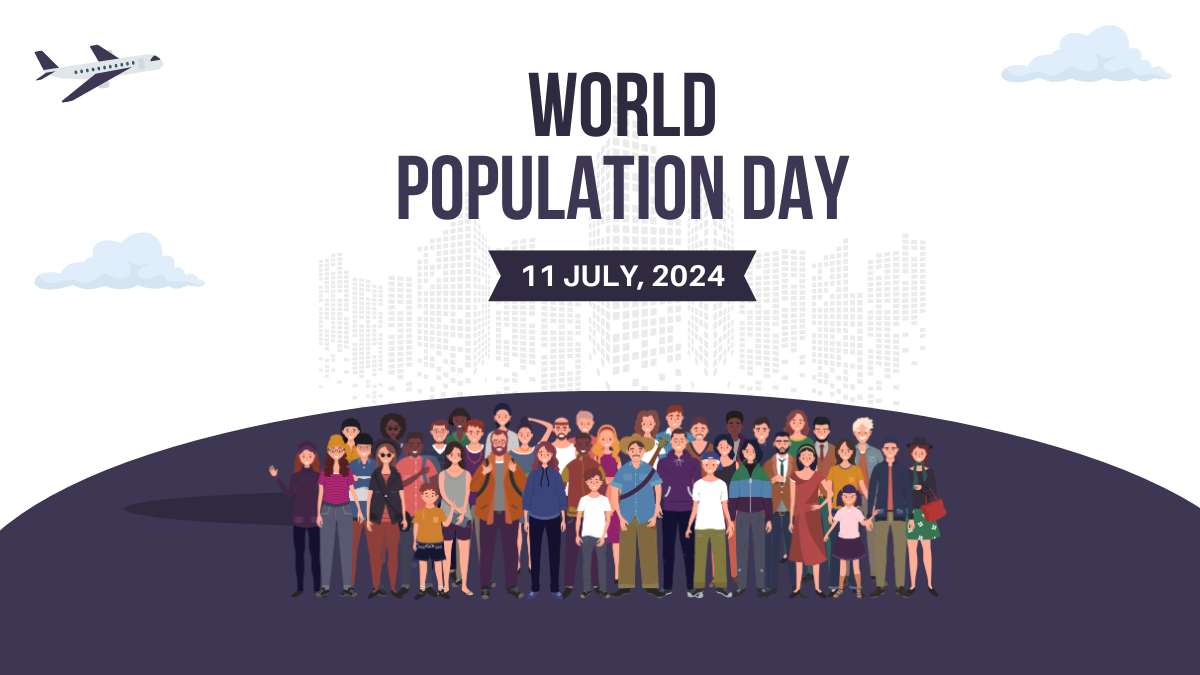As July 11th approaches, the world prepares to observe World Population Day, an annual event that has become increasingly significant in our rapidly changing global landscape. Established by the United Nations in 1989, this day serves as a crucial platform for raising awareness about pressing population issues that affect every corner of our planet.
The Origins and Evolution of World Population Day
The inception of World Population Day can be traced back to a pivotal moment in human history. On July 11, 1987, the world’s population reached an unprecedented milestone of 5 billion people. This remarkable event caught the attention of Dr. KC Zachariah, a senior demographer at the World Bank, who proposed the idea of commemorating this day annually. The United Nations, recognizing the importance of addressing population-related challenges, embraced this suggestion and officially established World Population Day in 1989.
Since its inception, World Population Day has evolved into a powerful tool for education and advocacy. It has consistently brought attention to critical issues such as reproductive health, family planning, gender equality, and sustainable development. Over the years, this observance has played a pivotal role in shaping policies, influencing public opinion, and driving action at local, national, and international levels.
The Significance of World Population Day
The importance of World Population Day cannot be overstated in our interconnected world. It serves as a annual reminder of the complex relationship between population dynamics and various aspects of human life and our planet’s well-being. This day encourages us to reflect on how population growth and demographic changes impact socio-economic development, environmental sustainability, and individual well-being.
World Population Day provides a unique opportunity for governments, organizations, and individuals to engage in meaningful discussions about population-related challenges and opportunities. It fosters a global dialogue on issues that affect us all, regardless of nationality, culture, or economic status. By bringing these topics to the forefront, World Population Day helps to break down barriers and promotes understanding and collaboration across borders.
Moreover, this day serves as a catalyst for action. It inspires policymakers to implement progressive policies, motivates researchers to delve deeper into population studies, and encourages individuals to make informed decisions about their reproductive health and family planning. The collective focus on population issues on this day often leads to innovative solutions and renewed commitments to addressing global challenges.
World Population Day 2024: “Leave no one behind, count everyone”
The theme for World Population Day 2024, “Leave no one behind, count everyone,” underscores a critical aspect of population dynamics and sustainable development. This powerful message emphasizes the importance of inclusive data collection and representation in shaping our understanding of global population issues and crafting effective solutions.
UN Secretary-General Antonio Guterres, in his statement on the theme, highlighted the crucial role of data in addressing population challenges. He emphasized that investing in comprehensive data collection is essential for understanding complex issues, tailoring appropriate solutions, and driving meaningful progress. Guterres stressed that accurate and inclusive data is the foundation upon which effective policies and programs are built.
The Importance of Data in Population Studies
The focus on data collection in this year’s theme is particularly timely and relevant. In an era of rapid technological advancement and big data, the potential for gathering and analyzing population-related information has never been greater. However, challenges remain in ensuring that this data is comprehensive, accurate, and representative of all segments of society.
Inclusive data collection means reaching out to marginalized and underrepresented communities, ensuring that their voices and experiences are captured in population statistics. This approach is crucial for developing targeted interventions that address the unique needs of different population groups. By leaving no one behind in our data collection efforts, we can create more equitable and effective policies that truly serve all members of society.
The Role of Financial Investment
Secretary-General Guterres also emphasized the importance of financial investment in realizing the goals of World Population Day. Adequate funding is crucial for implementing data collection initiatives, conducting research, and developing and executing population-related programs. Without sufficient financial resources, even the most well-intentioned efforts may fall short of their objectives.
The call for investment extends beyond just governmental spending. It encourages private sector involvement, international cooperation, and innovative funding mechanisms to support sustainable development initiatives. By unlocking affordable capital, countries can invest in the infrastructure, technology, and human resources needed to address population challenges effectively.
The Summit of the Future: A Platform for Progress
Guterres specifically mentioned the upcoming Summit of the Future as an opportunity for countries to make significant strides in addressing population and development issues. This high-level gathering of global leaders presents a unique chance to forge new partnerships, make concrete commitments, and unlock the resources needed to drive sustainable development forward.
The Summit of the Future is expected to be a milestone event where countries can showcase their dedication to addressing population challenges and share innovative approaches to sustainable development. It will serve as a platform for collaborative problem-solving and the exchange of best practices, potentially leading to breakthrough solutions in areas such as reproductive health, gender equality, and environmental sustainability.




 National Women's Day 2026 India: Signifi...
National Women's Day 2026 India: Signifi...
 World Radio Day 2026: Why Radio Still Ma...
World Radio Day 2026: Why Radio Still Ma...
 National Productivity Council Marks 68th...
National Productivity Council Marks 68th...








